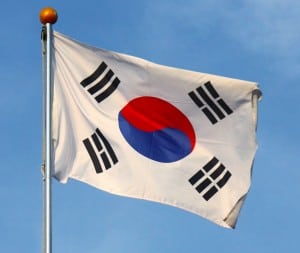Recently, Korean media reported that the Prosecutor’s Office in Korea is investigating a claim that McDonald’s Korea may have violated food safety rules based on the allegation by a family that their daughter contracted hemolytic-uremic syndrome (“hamburger disease") after consuming a hamburger at a McDonald's outlet in Pyeongtaek, Korea. This was the second claim during the same day that a McDonalds store in Korea served an uncooked meat patty.
Though McDonald's has denied responsibility, the investigation into McDonalds Korea, brings back memories of the Jack In the Box e-coli crisis that resulted in the near destruction of the Jack in the Box brand. It also highlights the issues facing food franchises caught up in an international or cross border crisis. See the following link for more info.
One of the reasons that Jack in the Box failed to handle the e-coli crisis was its failure to communicate with the press, stakeholders and yes, the public, properly. The principle focus of any crisis management strategy, especially in an international contest, is communications. All crisis management plans call for effective crisis communications, which many times are not always executed. Inadequate or failed communications lead to bad publicity, unhappy stakeholders, and potential disaster. An effective crisis communication strategy is necessary for any international crisis. It should be noted that a number of companies failed to defuse an international crisis because of poor communications. McDonalds Korea should take heed.
An ineffective crisis response caused by a failed communications strategy can significantly harm a company’s reputation, operations, and even its position in the marketplace. Whether a company survives a crisis or not is determined less by the severity of the impact than the response to the crisis. A company that responds effectively with a clear communications strategy will not only survive but find that its reputation has been enhanced. A company that does not respond with a clear communication strategy may not survive.
Look at some of the crisis in the past which were not defused properly because of a lack of attention to communication- Toyota, perhaps being one of the more recent. Though Toyota spent time and money to find out the issue surrounding the brake issue, its failure to communicate in a timely fashion lost the goodwill of many customers and hurt the brand.
An effective crisis communication strategy is necessary when dealing with an international crisis. In order to implement an effective crisis communication strategy, a number of processes must be implemented such as:
In order for McDonalds Korea to come out of the crisis in Korea unscathed, it must implement a crisis communication strategy. The “patty controversy” has not yet been properly addressed by McDonalds from a communication/PR standpoint which can lead to further reputational harm and negative financial impact. As claims of uncooked meat or even e-coli have haunted restaurants (especially hamburger or food related franchises) in the past, it is advised that regardless of the outcome, McDonalds and other franchises should have a crisis communication plan or strategy already set up and ready to implement.
Korean media has recently reported that the Prosecutor's Office in Korea is investigating a claim that McDonald's Korea may have violated food safety rules based on the allegation by a family that their daughter contracted hemolytic-uremic syndrome ( "hamburger disease") after consuming a hamburger at a McDonald's outlet in Pyeongtaek, Korea. Though McDonald's has denied responsibility, the investigation into McDonalds Korea, brings back memories of the Jack In the Box e-coli crisis that resulted in the near destruction of the Jack in the Box brand. It also highlights the issues facing companies caught up in an international or cross border crisis.
Managing an international crisis or a crisis with cross border implications can be a daunting task. Especially if it requires internal investigations to be conducted at a foreign venue or an overseas subsidiary. Conducting an investigation can be an emotion-charged, time-consuming process that requires expertise and effective planning. Are you ready to handle one? Managers and other staff who investigate sexual harassment claims in an organization or even claims involving corruption or bribes, harassment, or theft as well as other allegations should be prepared to conduct interviews and document the investigation in a proper and thorough manner.
Among the issues that add to the complexity of an international investigation are of course issues dealing with foreign laws, culture, communication, personnel security as well as data security and even differences in time. All of the issues combine to make international investigations very complex and rather daunting. For instance, who will handle the investigation? What privacy rights do employees have and what data privacy rights do they have. What laws will govern the investigation? And do the rules of attorney-client privilege and work product apply? These questions will have to be answered in order to set the stage for the investigation and to provide the framework needed for setting the ground rules of the investigation itself.
In most cases, courts will very closely scrutinize the employer’s internal investigation processes when deciding whether to find in favor of the employer or the employee. The employer will be held to a very high standard, and mistakes, slowness, inadequate documentation and other problems could make the difference between winning and losing the case. It may also decide whether a company faces criminal liability or criminal penalties.
The ultimate goal of an investigation is to enable the company’s decision-makers to resolve matters fairly and effectively. The immediate goal of an investigation is to obtain the facts. Therefore, to be effective, an investigation must be:
The investigative team involved in the investigation, if from the home office may face visa, medical and personnel safety issues that others don't face. The team may also be denied access to sensitive data that they are normally given access to back at home or they may have a hard time accessing databases that would allow them to track property ownership and court filings. These issues must also be taken into consideration when handling an international internal investigation.
To successfully handle or manage an international internal investigation as well as the international crisis itself requires a great deal of planning. The more planning that is done the easier the investigation will be.
President Moon Jae-in and his administration (the “Moon Administration”) have pledged to roll out changes to competition regulations as well as reinforce the fair trade regulatory framework in order to achieve his goal of “economic democratization”. Changes include: (i) strengthened enforcement measures that will include a stepping up of criminal enforcement, an expansion of the investigatory powers of the Korea Fair Trade Commission (the “KFTC”); (ii) stricter regulation of conglomerates (Chaebols) to ensure transparency in their corporate governance structures; and (iii) prevention of abuse of superior economic power. Though some of these measures are expected to be implemented as of this year, others are expected later. They include:
For a discussion of President Moon’s new Trade Policies that will be implemented to achieve some of the above goals please join me at the KBLA’s Corporate Governance Forum on June 30 at the Hyatt Hotel in Seoul, Korea for Retired Ambassador Seokyoung Choi’s presentation on President Moon’s Trade Policy.
Registration information is set forth in the link below:
 In Korea, it is vital that you take proactive steps to protect your trade secrets, especially when dealing wiht employees or former employees. A properly drafted confidentiality agreement which contains a restrictive covenant can be an effective tool for preventing trade secret disclosure. But what is meant by the term "restrictive covenant?" (more…)
In Korea, it is vital that you take proactive steps to protect your trade secrets, especially when dealing wiht employees or former employees. A properly drafted confidentiality agreement which contains a restrictive covenant can be an effective tool for preventing trade secret disclosure. But what is meant by the term "restrictive covenant?" (more…)
 The recent global cyber-attack emphasizes the growing risk of cyber-attacks around the world and the issues facing the risk and legal community. Not only do cyber-attacks threaten businesses and organizations on a daily basis but the addition of ransomware to the mix underlies the threats facing organizations, businesses and governments on a worldwide basis. (more…)
The recent global cyber-attack emphasizes the growing risk of cyber-attacks around the world and the issues facing the risk and legal community. Not only do cyber-attacks threaten businesses and organizations on a daily basis but the addition of ransomware to the mix underlies the threats facing organizations, businesses and governments on a worldwide basis. (more…)
 Korea Amends Its Product Liability Laws
Korea Amends Its Product Liability Laws
Korea recently amended its product liability law. The amendment is effective as of April 19, 2018. A short summary follows:
1. Punitive Damages
The current product liability law limits the claim for the damages to actual damages incurred and does not include punitive damages. The new amendment will provide for punitive damages (up to three times the actual damages or treble damages) if (i) the manufacturer knew about the defect of the product and failed to take necessary measures and (ii) the defect resulted in significant harm to a consumer’s life or body. The claimant has the burden of proving the fact that the manufacturer knew about the defect of the product and failed to take necessary measures.
2. Lessening of Claimant’s Burden of Proof
The amendment provides that if the claimant proves that (i) the claimant incurred damages while the product is used in the ordinary course of use, (ii) the damage was caused by a cause which is under de facto control of the manufacturer, and (iii) the damage does not customarily occur without the relevant defect of the product, it shall be presumed that the product was defective (existence of defect) and the damages are caused by the defect in the product (the causality between the defect and damages).
3. Shifting of Claimant’s Burden of Proof In Case Where the Manufacturer is Unknown
Under the current product liability law, in order for a claimant to seek compensation from a distributor in case where the manufacturer is unknown, the claimant has to prove that the distributor knew or could have known the manufacturer. Under the amended law, if the manufacturer is unknown to the claimant, the claimant may seek compensation from the distributor regardless of whether the distributor knew or could have known the manufacturer.
Conclusion
With introduction of the punitive damages, manufacturers doing business in Korea should review their internal procedures regarding the handling of product defects. Distributors also should review processes on handling information on the manufacturers and distributors who supply the products. Companies are also advised to establish internal procedures for taking appropriate measures in case of consumer complaints in order to minimize product liability risks such as (i) immediate suspension of sales or recalls, or (ii) adding additional or appropriate warnings in the label for the product.